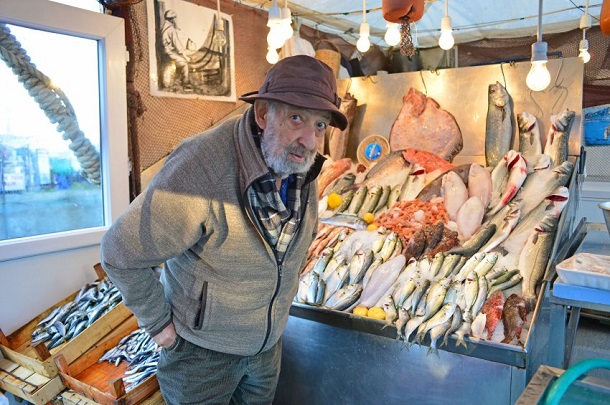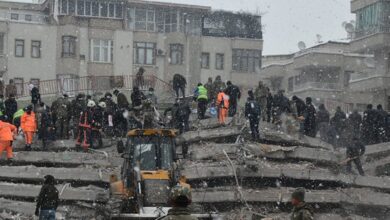Turkish-Armenian Photographer Ara Güler: Istanbul, my love / Artistry News
Ara Güler is Turkey’s most famous photographer. His pictures show a Istanbul, which no longer exists. Meanwhile he can the city ever suffer less, but a few corners he loves it. Traveled with a legend.
In the dream Ara Güler traveled into the past. Not in the his beloved Istanbul fifties, where he moved as a young guy around the houses and street scenes, workers and over the Bosphorus photographed images that would make him famous worldwide. But even further back. “I dream that I’m 1453 in Constantine Opel, the only person with a camera. Ottomans conquer the city, and I see to it that the world has a picture of this important event. Photographs are important for collective memory.”
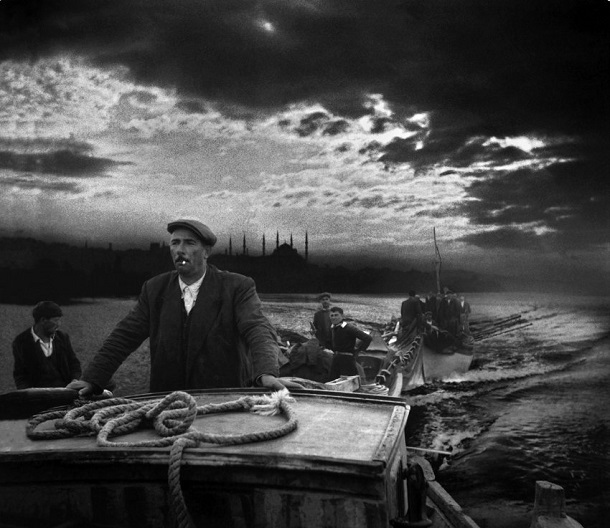
Ara Güler, the photojournalist. He may not be called a photographer, let alone artists. “I’m a journalist, a reporter.” In August he became 86 years old. After a serious kidney disease he is halfway back on his feet. He was in the ICU, and because many believed him dead, he made a Selfie and sent it to the world via Twitter.
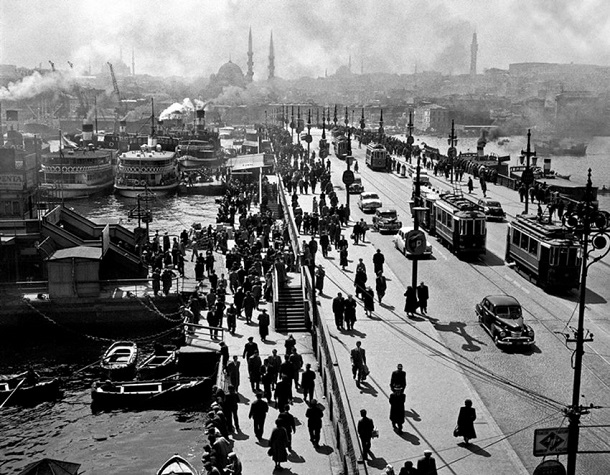
More than 60 years Ara Güler has photographed, Konrad Adenauer, Indira Gandhi, Alfred Hitchcock, long time for the famous Magnum agency. Pablo Picasso has painted a picture out of gratitude to him, it now hangs in a corner of Gülers office, between photos, postcards and note papers. His life’s work – negatives and slides – is crated in the floors above the Ara Café in Istanbul.
Ara Güler:”How much people want to buy it ?”
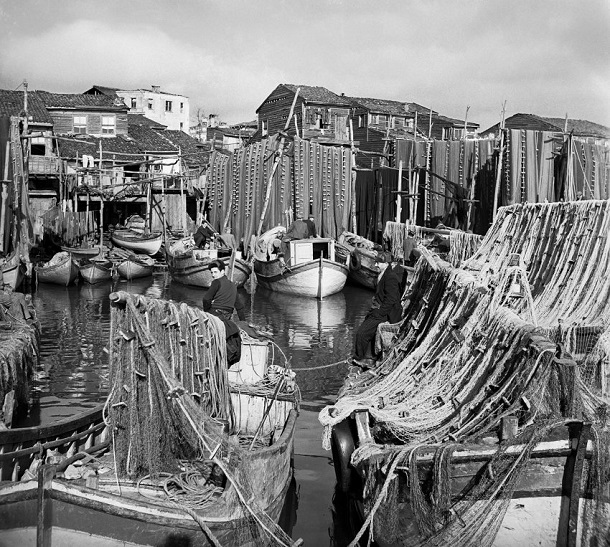
But most and most often he has photographed his beloved native city, especially in the fifties. To date, he takes pictures of Istanbul, but increasingly rare and more recently digital. The city has experienced in recent years a boom, the Güler “a development for the ugly” calls. “Everywhere streets and shopping malls People have only consumption, consumption, consumption in mind There are terrible malls that are so large. that you can spend all day in it. How much want to shop the people then? ”
Its Istanbul, the Istanbul of ordinary people. That the workers squatting on the sidewalk and talk animatedly. The fishmongers their fresh products to market haul. The men playing cards in the teahouse. In the background are seen often the famous mosques of Istanbul. “They are beautiful,” says Güler. “And I say this even though I’m not from religion.”
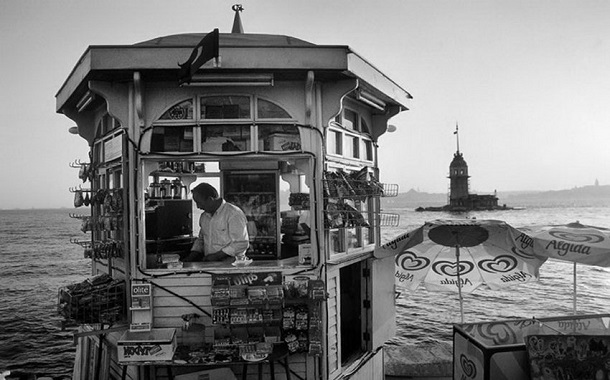
He photographed particularly like where there were social tensions, for minorities, in brothels, in the slums. There are photographs that shape our image of Istanbul, still also because they show the same Istanbul, the Nobel Prize winner Orhan Pamuk describes in his books. The old Istanbul in its beautiful imperfection. Some of these photos shows starting this Wednesday and until mid-January, the Friends of Willy-Brandt-Haus in Berlin. “The Eye of Istanbul – Retrospective 1950-2005” is the exhibition.
Ara Güler is a hero in Turkey
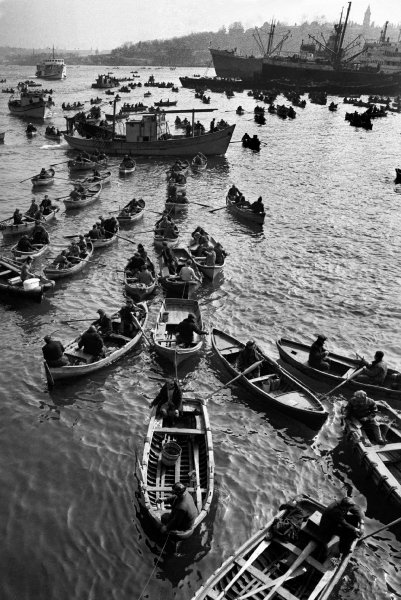
Where is Istanbul still beautiful? Güler must not think twice. “All along the water,” he says. “Come, I’ll show you my favorite place.” He climbs the help of his assistant on the passenger seat of his SUV, it is a small model, but at least Güler sits high, which is important to him. The wizard runs it up to the fishing port in Sariyer district. “I love this place,” he says. Fishermen welcome him, a fishmonger gives him her hand, suddenly Güler is surrounded by students who want to have their picture taken with him. He is a hero in Turkey.
He now travels through the hills that line the Bosporus. “In these streets I’ve pissed as a child,” he says and laughs. He loves to use expletives, in Turkish, from the crudest sort. Sometimes his assistant looks away in shame. In Gülers eyes you can see then, that he laughs inwardly.
He does what he wants. This, he stressed, had always been so. “My father was a pharmacist and wanted me to become a doctor.” But Güler was drawn to the theater people, which his father sold make-up to the slopes and shrill. Eventually he got a camera, since he takes pictures. He taught photographing themselves in – and made it to the world leaders.
Recep Tayyip Erdogan worshiped him, vice versa Güler has not have a good opinion of the president. “When I get time awarded a prize, Erdogan has photographed me. He even went to his knees before me.” About Erdogan dealing with critics, with journalists and with the Gezi protesters he is disappointed.
Güler, the Armenian Turk who prefer to keep distance to the powerful. Only to Prime Minister Mustafa Bülent Ecevit, a writer and poet, he maintained a friendship. “A good man,” says Güler.
When he enters a café on the banks of the Bosphorus, he is appalled by a sunscreen that blocks the view of the water. “What’s that? You unlock the beauty of!” Güler complains with the owner. “I’m not staying here!” He looks for another café.
The city has become too large to him. His Istanbul had a mere one million inhabitants. “I still remember how this brand has been exceeded.” Now there are 13, 14, maybe even 18 million people. “If there are too many people and too little space, they lose respect for each other,” says Güler. “You can see it every day on the road.”
Nevertheless, he would never want to live anywhere else. At Istanbul, he loves the diversity, multi-ethnicity, the Bunte. “Here, everyone finds their place,” he says. “Really everyone.” That this is so, Ercan Arslan holds photographically. Arslan is a student Gülers, and for some years he scans the same places that Güler has held. Arslan is the Istanbul of today not all that ugly. Eventually there will be a large exhibition that documents the change. Then the viewer to decide.
[adrotate group=”9″]

